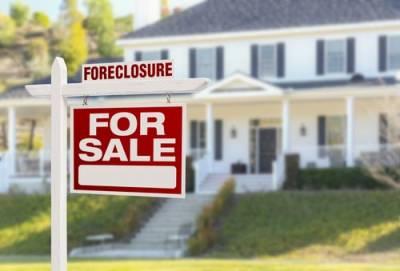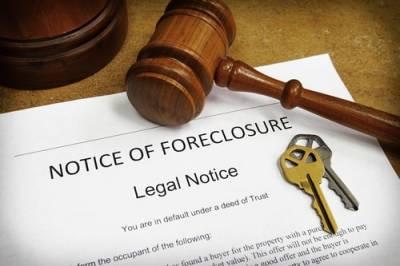1512 Artaius Parkway, Suite 300,
Libertyville, IL 60048
Call for a FREE Phone Consultation
847-549-0000
Video Consultations Also Available
 Spanish
Spanish Cantonese
CantoneseServing Clients Across 7 Illinois Locations
Recent Blog Posts
Can I Make My Sibling Sell Inherited Property?
 After a parent or relative passes away and property is inherited by more than one person, it is very common for the co-owners to disagree about what to do with the property. One adult sibling may want to keep a beloved family home, while another may see the matter more practically and wish to sell.
After a parent or relative passes away and property is inherited by more than one person, it is very common for the co-owners to disagree about what to do with the property. One adult sibling may want to keep a beloved family home, while another may see the matter more practically and wish to sell.
In cases like this, something known as a “partition action” may be brought before an Illinois court. If you are wondering whether a partition action may be helpful to you, speak with an Illinois real estate attorney with experience handling complex real estate matters.
What Happens if You Break a Lease Agreement?
 North Chicago tenants may be wondering what happens if you break a standard lease agreement. The answer to this question depends on a number of factors, including the terms of the lease agreement, the laws of the state of Illinois, and the specific circumstances of your situation.
North Chicago tenants may be wondering what happens if you break a standard lease agreement. The answer to this question depends on a number of factors, including the terms of the lease agreement, the laws of the state of Illinois, and the specific circumstances of your situation.
In general, if you break a lease agreement, you are still liable for the rent payments that you would have owed had you not broken the lease. This is true even if the lease agreement has been modified.
Is it Ever Okay to Break a Lease Agreement?
The laws of the state of Illinois do allow tenants to break a lease agreement without a penalty in certain circumstances, even if the lease has been modified. For example, tenants may be able to break a lease without penalty if they are a part of the uniformed services (i.e. military), if they or their children are victims of domestic or sexual violence, if the rental property is uninhabitable, or if they are being harassed or have had their privacy rights violated by the landlord.
What Is a Real Estate Market Correction?
 In 2008, the U.S. housing market “bubble” burst. Essentially, the housing market had become overinflated and then rapidly crashed. The bursting of the market’s bubble was caused by a host of significant factors, including the following:
In 2008, the U.S. housing market “bubble” burst. Essentially, the housing market had become overinflated and then rapidly crashed. The bursting of the market’s bubble was caused by a host of significant factors, including the following:
-
The subprime mortgage crisis
-
Rapidly falling home prices
-
High levels of debt among homeowners
-
Inadequate regulation of the financial sector of the economy
The housing market ultimately crashed because all of these factors dramatically impacted buyers, sellers, and developers all at once. When the market is affected by negative forces on a less intense – and perhaps less numerous – basis, a real estate market correction may occur.
Corrections vs. Crashes
Should I Negotiate with My Lender Directly if They Want to Foreclose?
 If you have received a notice that your mortgage lender intends to foreclose your home or you anticipate this news because you are behind on your mortgage payments, you may be wondering if giving them a call and negotiating with them could be beneficial. While this approach may have been a viable strategy if you needed to miss a payment, if you are already behind on your mortgage, it is time to engage the services of a legal professional who can negotiate with your lender on your behalf.
If you have received a notice that your mortgage lender intends to foreclose your home or you anticipate this news because you are behind on your mortgage payments, you may be wondering if giving them a call and negotiating with them could be beneficial. While this approach may have been a viable strategy if you needed to miss a payment, if you are already behind on your mortgage, it is time to engage the services of a legal professional who can negotiate with your lender on your behalf.
The Stakes of Your Situation
The primary reason why it is important to seek legal representation if your home is already at risk of foreclosure is that the stakes of your situation are so high that you cannot afford to make even a single misstep. Unless you are a trained negotiator, chances are that you are unsure of exactly how to achieve the most favorable outcome via direct negotiation with your lender. As a result, you may unintentionally say something that could compromise the strength of your legal and financial position. Furthermore, banks hire skilled negotiators whose job is to maximize the bank’s profits, even at the cost of the bank’s clients such as yourself. Having an attorney in your corner can make all the difference in achieving a fair deal.
Wait or Commit? Buying a Home While Interest Rates Are High
 Most Americans do not have the luxury of waiting to sell or purchase a home when the real estate market is ideal. A growing family, employment opportunities in a new area, or a significant change in circumstances may warrant a move regardless of whether market conditions are what one would wish. Current aspiring homebuyers, for example, may need to make a purchase even though interest rates are particularly high and inventory is low in many areas. Thankfully, if it is time to commit to buying a new residence, there are safeguards that can be put into place to better protect the interests of a new homebuyer who is navigating a challenging market.
Most Americans do not have the luxury of waiting to sell or purchase a home when the real estate market is ideal. A growing family, employment opportunities in a new area, or a significant change in circumstances may warrant a move regardless of whether market conditions are what one would wish. Current aspiring homebuyers, for example, may need to make a purchase even though interest rates are particularly high and inventory is low in many areas. Thankfully, if it is time to commit to buying a new residence, there are safeguards that can be put into place to better protect the interests of a new homebuyer who is navigating a challenging market.
To Buy or Not to Buy?
It is true that when the market is less than ideal, some aspiring homebuyers would do better to wait – if possible – for better conditions before making such a large investment. Specifically, due to very high-interest rates, homebuyers who would need to max or exceed their budgets in order to make a purchase and those whose income streams are uncertain may want to wait, if they can, to make a purchase.
Why Are Foreclosure Rates Spiking?
 According to a prominent real estate data group, foreclosure rates are spiking significantly nationwide. Specifically, the number of foreclosure cases filed in May – which total 35,196 cases nationwide in a single month – is up 7% from the previous month and a staggering 14% from May of the previous year. Given that the job market remains strong, it is understandable that many people are both puzzled and concerned about the risk of foreclosure that is currently plaguing too many Americans.
According to a prominent real estate data group, foreclosure rates are spiking significantly nationwide. Specifically, the number of foreclosure cases filed in May – which total 35,196 cases nationwide in a single month – is up 7% from the previous month and a staggering 14% from May of the previous year. Given that the job market remains strong, it is understandable that many people are both puzzled and concerned about the risk of foreclosure that is currently plaguing too many Americans.
What Is Going On?
Unlike many other periods of heightened foreclosure activity, the primary economic force driving unfavorable foreclosure rates is not joblessness. Instead, the cost of living in both urban and rural areas – as well as wages that are not keeping pace with inflation – are of the utmost concern to economists and homeowners alike. Wages had been rising prior to 2020 but that trend abruptly halted, even as the costs for both goods and services started rising at disturbing rates.
Navigating the Housing Market’s New “Ice Age”
 A recent Newsweek poll reveals that nearly six out of every 10 Americans are either “very” or “fairly” concerned that the U.S. housing market is going to crash within the year. Certainly, the nation’s economic news is not particularly bright, especially because the nation’s top leaders have not yet resolved serious budgetary and debt ceiling concerns. However, there are other reasons why both aspiring homebuyers and current homeowners hoping to sell soon are getting concerned.
A recent Newsweek poll reveals that nearly six out of every 10 Americans are either “very” or “fairly” concerned that the U.S. housing market is going to crash within the year. Certainly, the nation’s economic news is not particularly bright, especially because the nation’s top leaders have not yet resolved serious budgetary and debt ceiling concerns. However, there are other reasons why both aspiring homebuyers and current homeowners hoping to sell soon are getting concerned.
For example, one recent Business Insider feature is entitled “The Housing Market’s Ice Age,” and its subtitle reads, “If you don't already own a home, you're going to be screwed for years to come.” The piece concerns the fact that, in much of the country, higher prices, lower inventory, and fewer sales are freezing the market over. It would be difficult to NOT be concerned about the state of the residential real estate market after reading comments like that from a trusted source. The question then becomes, how do those who hope to buy or sell a home over the next few years navigate current and likely conditions successfully?
What Is a Consent Foreclosure?
 Oftentimes, it is possible for homeowners who want to save the equity they have invested in their homes to avoid foreclosure, even if they have missed multiple payments. Speaking with an attorney about their options is usually a good place to start “fighting back” against the risk of foreclosure. Yet, there are times when fighting back against this risk might not be in a homeowner’s best interests. Due to the nature of their circumstances, engaging in a so-called consent foreclosure may be preferable.
Oftentimes, it is possible for homeowners who want to save the equity they have invested in their homes to avoid foreclosure, even if they have missed multiple payments. Speaking with an attorney about their options is usually a good place to start “fighting back” against the risk of foreclosure. Yet, there are times when fighting back against this risk might not be in a homeowner’s best interests. Due to the nature of their circumstances, engaging in a so-called consent foreclosure may be preferable.
Safeguarding the Interests of Homeowners in Specific Ways
In the event of a “traditional” judicial foreclosure, a home is sold by a lender that is owed repayment for a home loan that is in default. The former owner of that home is usually responsible for repaying any outstanding amount owed to the lender. If the lender does not receive this repayment, it may seek a deficiency judgment. To enforce that deficiency judgment, the lender may seek to garnish the former owner’s wages or even seize the contents of their bank account.
Illinois Housing Market Cited Among the Nation’s Most Vulnerable
 The real estate market is not a static influence. It ebbs and flows nationally, at the state level, locally, and even within neighborhoods on a fairly regular basis. The constantly changing nature of the market means that some aspiring buyers, aspiring sellers, and current homeowners do not care to “keep up” with how the market is trending. Some find this effort to be too complicated and frustrating to be worth their time. Others assume that what will be will be. Yet, it remains important to understand what the market is doing so that anyone who is interested in engaging in a real estate transaction – or keeping their home safe from a risk of foreclosure – can better protect their interests.
The real estate market is not a static influence. It ebbs and flows nationally, at the state level, locally, and even within neighborhoods on a fairly regular basis. The constantly changing nature of the market means that some aspiring buyers, aspiring sellers, and current homeowners do not care to “keep up” with how the market is trending. Some find this effort to be too complicated and frustrating to be worth their time. Others assume that what will be will be. Yet, it remains important to understand what the market is doing so that anyone who is interested in engaging in a real estate transaction – or keeping their home safe from a risk of foreclosure – can better protect their interests.
What Is Going on?
Uncertainty is not a pleasant reality when individuals are looking to buy, sell, or effectively maintain real estate. Unfortunately, the current housing market in Illinois is being widely cited as among the most vulnerable in the U.S. Essentially, communities are suffering from a high risk of multiple foreclosures due to a variety of factors. This reality affects buyers, sellers, and owners alike. The challenges of this situation have cooled the market and may, in time, effectively chill it.
Most Lenders Prefer to Avoid Foreclosure
 All too often, homeowners are under the impression that there is no way to respond to a foreclosure notice effectively. They assume that if their lender has announced its intention to foreclose upon a property, nothing more can be done. In truth, the foreclosure process involves a complex series of steps. At virtually any point during the foreclosure process, a specific kind of response from a homeowner has the potential to yield positive results.
All too often, homeowners are under the impression that there is no way to respond to a foreclosure notice effectively. They assume that if their lender has announced its intention to foreclose upon a property, nothing more can be done. In truth, the foreclosure process involves a complex series of steps. At virtually any point during the foreclosure process, a specific kind of response from a homeowner has the potential to yield positive results.
This is one of the reasons why it is so important to seek legal guidance if a homeowner’s investment is in jeopardy due to non-payment of mortgage obligations. There are so many checks and balances built into the system that there is almost always a way to remedy a foreclosure risk, regardless of how many steps forward a lender has taken in pursuit of repossessing someone’s home. Some of these opportunities exist because of safeguards within the legal system. Others exist simply because most lenders like to avoid foreclosure whenever they can.
 Stop Foreclosure
Stop Foreclosure




















